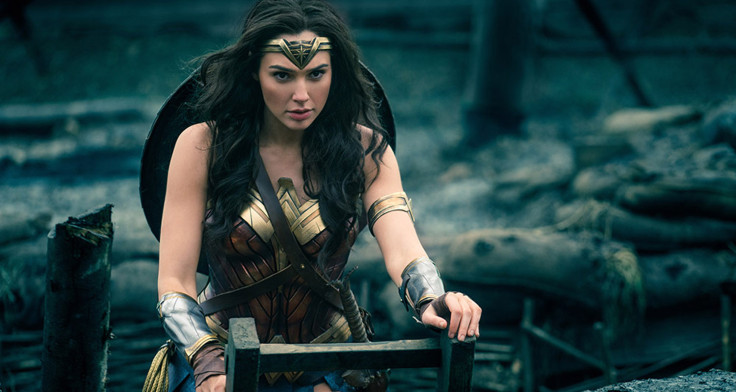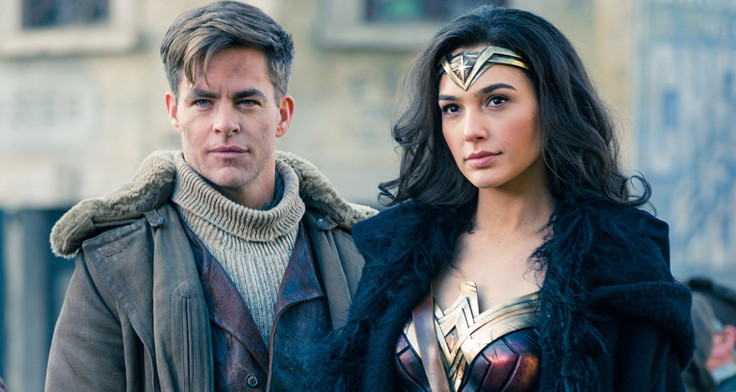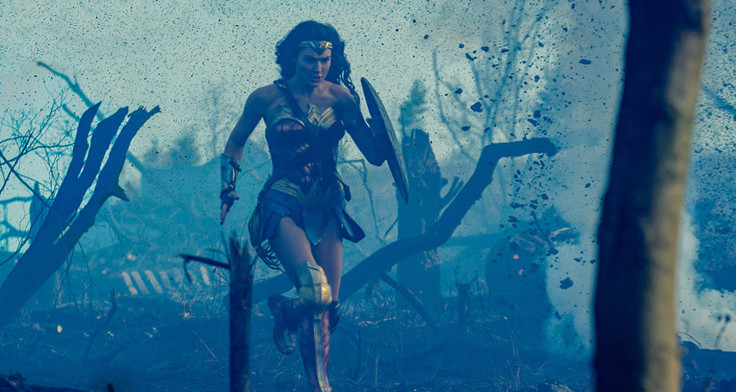Wonder Woman review: Gal Gadot shines in the big-screen adventure this superhero icon deserves
Gadot and co-star Chris Pine share a wonderful chemistry in a film that fundamentally understands its hero.

It's taken Hollywood 76 years to give Wonder Woman a starring role in her own big-screen adventure. In that time there have been ten Batman films, seven Superman films and three starring the Fantastic bloody Four.
To say the superhero icon's first solo film has been long overdue is an understatement. Were it to disappoint, long wait would have made it one of the most heartbreaking flops in film history – but to great relief the film delivers.
The signs weren't good. Warner Bros' universe of connected DC Comics adaptations (called the DCEU) had been a bitter disappointment prior to this latest release.
Superman reboot Man of Steel was a dreary misfire for Zack Snyder and his follow-up, Batman v Superman: Dawn of Justice, was a career-defining disaster. Even free of the director, the most recent DCEU release, Suicide Squad, was an incoherent mess.
In an effort to differentiate itself from the increasingly successful and remarkably consistent Marvel Cinematic Universe, Warner Bros chose to take its films down a darker path. Not a bad idea in of itself, but a terrible one in practice, resulting in a succession of miserable, poorly-plotted films that were detrimental to nearly every character involved.
Gal Gadot's Wonder Woman has been among the few exceptions. With just seven minutes of screentime in Batman v Superman she managed to steal the show, and her performance offered a glimmer of hope for any solo adventure.
Wonder Woman came together and entered production without a huge amount of hype or expectation following Warner Bros' failings. In recent months alarm bells began ringing when people noticed a distinct lack of marketing from the studio.
It seemed like Warner was prepping for another stinker, but in fact Wonder Woman is a triumph – rising from the DCEU's creative quagmire as a beacon of hope in a franchise more concerned with stoicism than heroism.

This may sound like the highest of praises, but that's only in comparison to previous DCEU films. Wonder Woman is certainly fun and well-made, but it's not perfect. In fact, it shares its greatest problems with the three films that preceded it.
Wonder Woman's third act revolves around a final conflict that predictably descends into a maelstrom of murky CGI nonsense. It's sad how reminiscent of Batman v Superman it becomes, especially when the first two thirds of the film are a genuine delight.
The story begins on Themyscira, an idyllic island where the Amazons, creations of the Greek god Zeus, live in peace and harmony. This is where we meet young Diana and the two central figures in her life: her mother Hippolyta (Connie Nielsen) and Antiope (Robin Wright) who teaches her in secret how to fight.
Diana's backstory, and that of the Amazons, is told as it should be: proudly but aware of its own ridiculous nature. The film plays it straight at first, but that only feeds into the camp nature of the opening act.
It's when Steve Trevor (Chris Pine) arrives that the plot picks up. He is an American working as a British spy, who crash lands in the waters of the hidden utopia. A now grown-up Diana (Gadot) saves him, but pursuing German soldiers turn up and head straight into a coastal conflict with the battle-ready women of Themyscira.
Steve tells the Amazons of the war – the war to end all wars – raging beyond the barrier between them and the rest of the world. He's on a mission to deliver important intelligence regarding a chemical weapon being developed by German scientist Dr Maru (Elena Anaya) and overseen by General Erich Ludendorff (Danny Huston).
Wonder Woman's origins in the comic books are rooted in World War Two, but in an effort to differentiate itself from Captain America: The First Avenger, the new film takes place in 1918.
The change is a smart one. Diana is an idealistic woman with a simplistic view of good versus evil that is challenged over the course of the film. She believes that the god of war Ares, who her people are destined to protect the Earth from, is behind the conflict – and that killing him will bring peace.
Being the most pointless and devastating of pointless and devastating man-made wars, World War One provides an apt setting to test Diana, as she witnesses the horrors humankind is capable of.

The success of Wonder Woman the film comes squarely down to its understanding and portrayal of Wonder Woman the character. She's an unashamed hero, who fights for good and enjoys it. Gadot's smile is refreshing to see after seeing so much of Henry Cavill's dour Superman.
Her's is a smile that illuminates even the Western Front, as out of place as that might seem. The presence of such an impossibly beautiful, red, blue and gold superhero in such an awful setting should also seem out of place, but the film succeeds in making it work.
The fish-out-of-water elements are also responsible for the film's best comic beats – both when it is Steve bewildered by Themyscira and Diana becomes fascinated by 1918 London.
The chemistry between Gadot and Pine does wonders for Allan Heinberg's script. Both stars turn in great performances – Pine's reliably charming and affable, Gadot's a surprise given how limited she's appeared in the past. Here she shines as both a naive woman learning about mankind and as the determined action heroine who rallies against the horrors around her.
Wonder Woman's standout scene comes roughly halfway through, when on the front line Diana goes over the top and into No Man's Land. It's the film's triumphant moment as Diana casts off the long cloak she's had to wear to avoid attracting attention, and she takes her rightful place as the centre of it.
As she draws fire from the German troops, she inspires her own to advance, and before long she's hurtling towards a nearby village where she's heard the local populace is an great danger. It's a fantastic scene that bears a stylistic resemblance to the best of Zack Snyder's work in 300. This is comic book action, with absurd, fast-slow-fast flourishes, that is effective because the character work informing it is so strong.
Even in the drawn-out final act, when the CGI is overwhelming and any of the grounding the film previously had is lost, it still works better than in past DCEU films because the character of Diana is so well-realised.
It's been five years since Warner Bros last released a great DC Comics movie – nine depending on how you feel about Christopher Nolan's The Dark Knight Rises. Either way, fans of these iconic DC characters have been short-changed by years of cynical releases revolving around an interpretation of Superman that fundamentally doesn't understand the character.
Wonder Woman succeeds because it understands the characte. Not only that, it lets her shine in an origin story that may hit familiar beats at times, but is driven by great character work, a clever script and two great leading performances. There's hope yet for DC's big screen universe, and it's up to November's Justice League to make the most of it.
© Copyright IBTimes 2024. All rights reserved.






